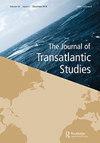“跨越海浪”:葡萄牙-巴西文学共和国在芬兰
Q1 Arts and Humanities
引用次数: 0
摘要
在人们的脑海中,“经济危机”并不是一个支持超国家的葡巴文学和文化纽带的时期。在这一时期,一系列事件拉开了葡萄牙和巴西的政治距离,并破坏了这两个国家的稳定。巴西的共和政变(1889年)给葡巴帝国的棺材钉上了最后一颗钉子,并引发了一场跨大西洋金融危机;1890年,英国就葡萄牙的非洲主权问题向葡萄牙发出“最后通牒”,破坏了君主制;葡萄牙对巴西“无敌舰队起义”(1893-94)的有限干预导致两国外交关系暂时中断。此外,巴西旧共和国早期咄咄逼人的民族主义以一种明显的软恐惧症为标志。在葡萄牙,关于巴西和巴西人(回国的葡萄牙暴发户)的负面刻板印象仍然很受欢迎。我认为,这种激动人心的事态促使一群巴西和葡萄牙作家断言,尽管两国在政治上不受欢迎,但两国之间的关系是持久的。我将重点介绍这一时期葡-巴西主义活动的三个时刻:若阿金·纳布科1880年和1888年在巴西里约热内卢的Gabinete Português de Leitura上的演讲,奥利维拉·马丁斯的《O Brasil e as Colônias portuesas》(1888年)的出版,以及巴西诗人奥拉沃·比拉克1916年访问葡萄牙。本文章由计算机程序翻译,如有差异,请以英文原文为准。
“Across the Waves”: The Luso-Brazilian Republic of Letters at the Fin de Siècle
The fin de siècle does not immediately spring to mind as a period sympathetic to supranational Luso-Brazilian literary and cultural bonds. The period witnessed a sequence of events that distanced Portugal and Brazil politically, and destabilized both countries. Brazil’s republican coup (1889) put the final nail in the coffin of the Luso-Brazilian empire and led to a transatlantic financial crisis; Britain’s “Ultimatum” (1890) to Portugal regarding its African claims undermined the monarchy; and Portugal’s limited intervention in Brazil’s Revolta da Armada (1893-94) led to a temporary suspension of diplomatic relations. Further, the aggressive nationalism of the early years of Brazil’s Old Republic was marked by a pronounced lusofobia. And negative stereotypes about Brazil and brasileiros (nouveau riche Portuguese returnees) remained popular comic fodder in Portugal. I contend that this agitated state of affairs prompted a cohort of Brazilian and Portuguese writers to affirm enduring Luso-Brazilian ties despite their political unpopularity. I will focus on three moments of Luso-Brazilianist activity during the period: Joaquim Nabuco’s 1880 and 1888 speeches in Rio de Janeiro’s Gabinete Português de Leitura, the publication of Oliveira Martins’s O Brasil e as Colônias Portuguesas (1888), and the 1916 visit to Portugal of Brazilian poet Olavo Bilac.
求助全文
通过发布文献求助,成功后即可免费获取论文全文。
去求助
来源期刊

Journal of Transatlantic Studies
Arts and Humanities-History
CiteScore
0.90
自引率
0.00%
发文量
15
期刊介绍:
The Journal of Transatlantic Studies is the official journal of the Transatlantic Studies Association. It began publication in 2003. The focus is on the transatlantic region broadly defined to include the Americas and the Caribbean in the west and Europe extending to Russia the Middle East and Africa in the east.The Journal explores and provides multi-disciplinary analysis of this vital region of the world through engagement principally with: - History - Literature - IR and Security Studies - International Law and Organisation - Culture and Race - Slavery and Migration - Film - Economics and Business Studies - Planning and the Environment It is published quarterly and accepts proposals for themed issues as well as individual articles between 5-12,000 words in length. It also has a short book review section. Two peer reviewers evaluate all submissions and any manuscript that divides opinion is then submitted to a third peer reviewer for a final decision. The JTS aims to provide decisions on submissions within 12 weeks.
 求助内容:
求助内容: 应助结果提醒方式:
应助结果提醒方式:


